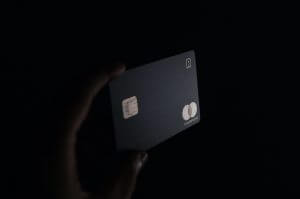Home ∙ Credit Score Ranges ∙ 712 credit score
Each major credit bureau will usually label a 712 credit score as “good” credit.
According to Experian, 21% of consumers have an average credit score in the “good” credit range.1
Consumers with this kind of credit score most likely have a history of healthy credit habits like on-time payments and responsible borrowing. Here, you’ll learn what it means to have a 712 credit score and how to protect, maintain, and even improve this already great FICO score.
Key Takeaways for a 712 Credit Score
Overview of Your
Credit Rating
712 is a good credit score. In fact, 712 is towards the top of the “good” credit tier and less than 30 points away from the “very good” credit category!
Borrowing Options With a
712 Credit Score
Most borrowing options, like personal loans and other installment loans, are available. However, interest rates and terms may vary.
Improving a 712
Credit/FICO Score
Consumers can maintain this good credit score by keeping a positive payment history, avoiding bad debts, and diversifying their credit portfolios.
Is a 712 Credit Score Good?
Indeed it is! 712 is part of the “good” credit score range, which includes all scores between 670 and 739. Higher credit score ranges include scores between 740 and 799 (“very good” credit) and scores between 800 and 850 (“excellent” credit).
What Can You Get Approved for?
Upgrade
4.4 Trustpilot Rating
- Rewards checking
- Personal loans
- Upgrade OneCard
- Premier savings
Upgrade is a finance company that provides affordable and responsible credit products to borrowers in need. They offer spending cards and personal loans. Loans range from $1,000 to $50,000, and personal credit line cards range from $500 to $25,000.
Min Credit Score Depends on the Product You Choose
Consumer Credit Union
4.8 Ninja Star Rating
- Personal loans & auto loans
- Mortgages
- Credit cards
- Banking solutions
Like other credit unions, Consumers Credit Union is an open-to-the-public, not-for-profit institution. This credit union offers a wide range of products and services to members—checking, savings, debit and credit cards, vehicle and consumer loans, money market accounts and certificates.
Check out Their Website for More Information on Products and Services
Creditstrong
4.0 Ninja Star Rating
- Installment or revolving credit
- Flexible pricing
- Build credit history
- Build your savings
CreditStrong offers safe and secure solutions to help borrowers build credit. CreditStrong offers two different types of accounts: installment and revolving. These accounts are a combination of a savings account and either a secured installment loan or a secured revolving line of credit.
No Minimum Credit Score Required
People with good or great credit will usually have an easier time getting approved for most loan or credit card products. Some financial products you may get approval for with a 712 credit score are:
Personal Loans
Personal loans are a type of installment loan, meaning borrowers are paid in one lump sum and repay their balance in equal monthly installments. With a great credit score of 712, you should be able to get approved for many kinds of personal loan products. Just make sure to research multiple lenders and compare your options to find the best deal possible!
Bank Loans
Bank loan requirements can vary depending on the specific loan type. Check out a brief comparison of what different loan deals from a bank might look like amongst a few different products below.
| Requirement | Personal Loan | Home Equity Loan | Auto Loan | Mortgage |
|---|---|---|---|---|
| Credit Score | Varies, usually 600+ | Varies, often 620+ | Varies, 500+ | Varies, often 620+ |
| Income Verification | YES | YES | YES | YES |
| Employment History | Yes, typically 2 years | Yes, typically 2 years | Not always | Yes, typically 2 years |
| Debt-to-Income Ratio | Below 36% preferred | Below 43% preferred | Less strict, varies | Below 43% preferred |
| Collateral (for secured loans) | Not always required | Yes, your home | Yes, the vehicle | N/A |
| Down Payment (for mortgages) | N/A | N/A | N/A | Typically 3-20% |
| Property Appraisal (for real estate loans) | N/A | Required | N/A | Required |
Disclaimer: This table gives a general overview of what banks may require for different types of loans. Requirements can vary significantly between lenders and depending on your financial situation.
Credit Cards
Credit cards are revolving credit accounts that give consumers access to a set credit limit every month. To avoid accumulating too much credit card debt, paying off your entire balance as often as possible is the best practice. Some popular credit card products include:
- Citi Diamond Preferred card
- Wells Fargo Active Cash card
- Hilton Honors American Express Card
- Chase Freedom Unlimited
- Chase Sapphire Preferred
Car Loans
Car loans are secured loans used to purchase a new or used vehicle. Financial institutions like dealerships, direct lenders, and independent online lenders usually offer car loan products. With an average credit score of 712, you should be fine meeting the minimum credit score qualifications for most auto loans.
Products and Tools to Help Maintain a 712 Credit Score
Check out the products and tools below to help you maintain your average credit score and keep your credit reports in top shape.
Digital Budgeting Apps
Keeping a reasonable budget is essential if you want to maintain or even improve your average credit score. Digital budgeting apps can ease the burden of keeping track of all your due payments and spending habits. A few apps you can download today are:
- Monarch Money
- Buddy
- Simplifi
- YNAB
- Oportun
- Zeta
- Wally
- EveryDollar
- PocketGuard
Credit History and Report Monitoring
All three major credit bureaus offer credit monitoring services that can help you keep tabs on your recurring credit reports. Credit monitoring services can help you track activity such as:
- Average credit score fluctuations
- New accounts opened in your name
- Any changes in credit card balances or credit utilization
- Late or missed payments on loans or bills
- Other derogatory credit information (such as bankruptcy or charge-offs)
- Updates to your personal data (name, address, and other identifying information)
Savings Account
In addition to a checking account, you should also have a savings account or emergency fund. That way, if surprise expenses pop up that you can’t cover with your next paycheck, you have some money stored away you can use. This can help you avoid acquiring bad debts like payday loans that can potentially put your financial situation and credit score at risk.
Benefits of a 712 Credit Score
Some benefits consumers with higher credit scores can enjoy are:
- Easy approval on loans and credit cards
- Higher credit limits
- Lower interest rates
- More flexible repayment schedules
How to Maintain Your 712 Score
A few tips you can use to make sure you maintain a healthy credit history are:
- Check your free credit report often, about once a month or so
- Make all your due payments on time
- Report any inconsistent or suspicious activity you find on your credit report ASAP
- Keep credit utilization low, around 30% or less
- Keep credit accounts open, even if you don’t use them often (this will help keep your credit utilization intact)
Avoid “bad debts” like payday loans or other quick cash loans
FAQs About 712 Credit Scores
Can 712 credit scores qualify for balance transfer cards?
Balance transfer cards are accessible with a 712 score, allowing consolidation of credit card debt under lower interest rates, but terms vary by issuer.
How do credit scores affect credit limit increases?
With a 712 credit score, you’re in a good position to negotiate higher credit limits, but issuers also consider income and account history.
Does applying for new credit affect average credit scores?
Applying for new credit can temporarily lower your score due to hard inquiries. However, managing new credit responsibly can positively impact your score over time.
What Interest Rate Can I Get With a 712 Credit Score?
Credit history plays a major role in determining interest rates for many types of loans, credit cards, and other financial products. So, with an average credit score of 712, you’re already set up for success. But keep in mind that lenders look at more than just credit scores. They’ll also consider your recurring income, current debts, and other aspects of your financial history.Can I Buy a House With a 712 Credit Score?
According to the United States Census, there are approximately 145,967 households in the United States. Of those 145,967 households, 86,220 of them are owned by their residents.2 The good news is that with a higher credit score, you have a better chance of receiving approval for a mortgage loan and joining those 86,000+ households of homeowners.Top 5 Resources for a 712 Credit Score
References:
- 712 Credit Score: Is it Good or Bad? Experian
- QUARTERLY RESIDENTIAL VACANCIES AND HOMEOWNERSHIP, FOURTH QUARTER 2023 | Census.gov




